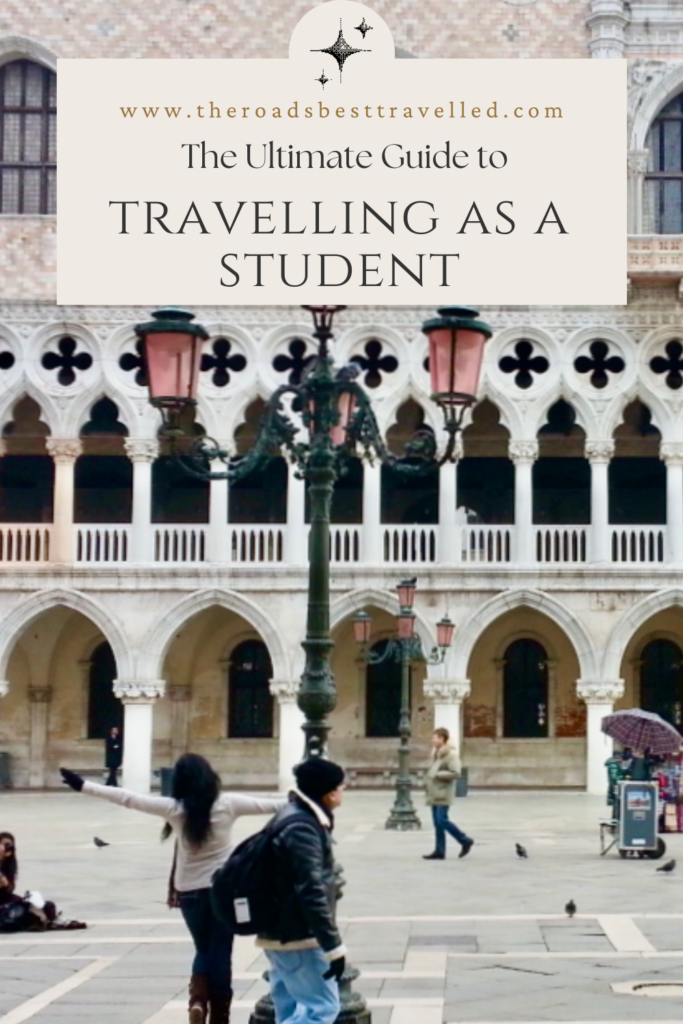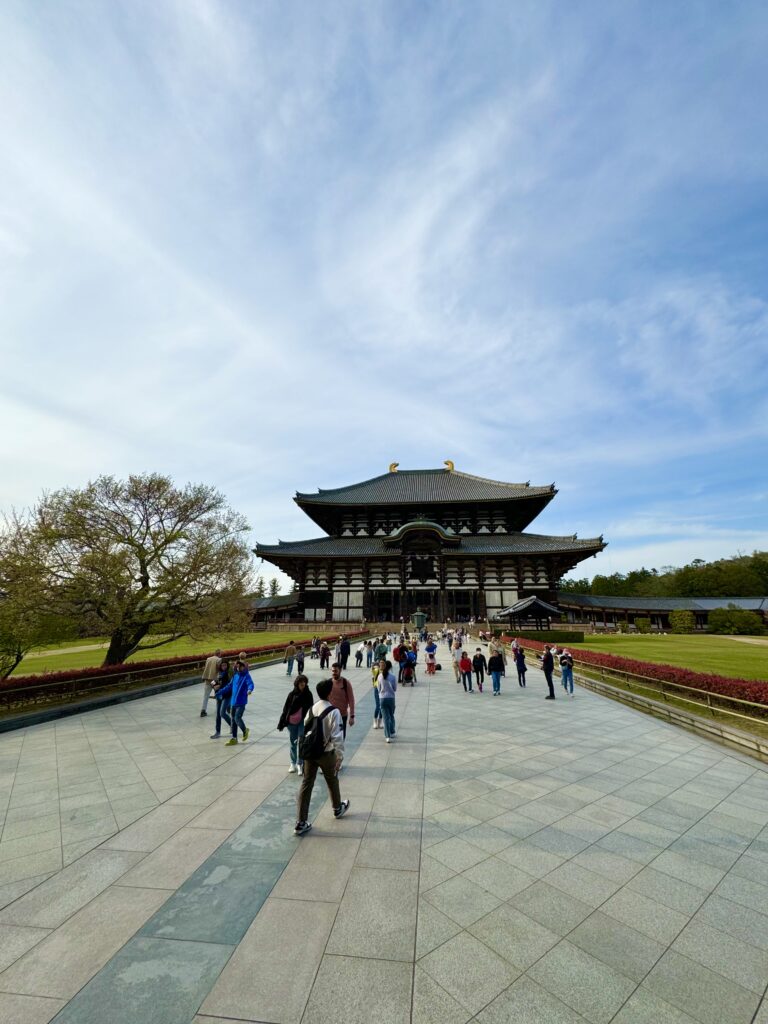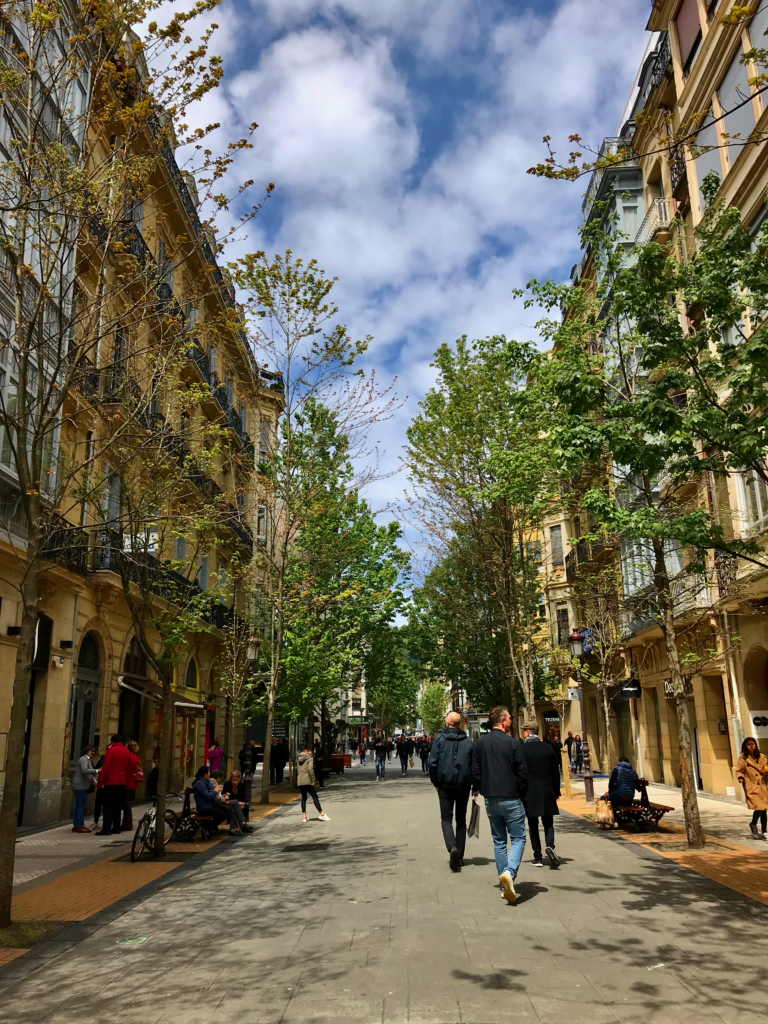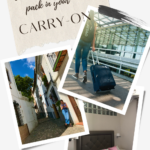
Travelling while you’re still in school could be a fantastic experience for you. You could earn credits towards your degree while making memories of a lifetime. You’ll be able to see in real life what you’ve only seen in books; complimenting your classroom experiences. Travelling while you’re still in school could be one of the best life choices you’ll ever make.
But first: let’s talk about money.
One of the worst things someone could say is that money isn’t important; that you should seize the day, spend it all, live your dream, yadda yadda yadda. Travel isn’t always a financially viable option for everyone depending on where they are in their life’s journey.
On the other hand, it’s cheaper than ever to travel: there are discount flights, cheap accommodations (like couch surfing or even house sitting), and cheap transport (like BlaBlaCar). I’ll get into all these mostly free options in a bit.
I want to talk candidly about money because I’m not here to tout that money is no object. Travel can be cheap (or expensive!) depending on your goals and priorities.
But money will (probably) always be an issue.
There are countless resources and travel hacks to help you stretch your budget further, but you’ll still have to spend some money. If you’re already trying to make rent, pay tuition, buy food (i.e. simply live) then travel can seem out of reach and undoable. I want to set some expectations that travelling is doable on tight budgets, but it will still involve spending money.
What I’d like to do is give you the pros and cons I’ve learned about travelling while still in school. I hope my tips will help you make an informed, and realistic, decision of whether you can take advantage of travelling while you’re still studying and without adding undue financial burden on yourself.
And don’t fret if you really can’t travel while you’re still in school! Travelling after school when you have more savings and less debt has its own benefits (and we’ll get to that in another post).
Take Advantage of your University’s Travel Programs
Studying abroad with partner universities

One of the reasons to take advantage of a university study program is because of the support systems they might offer. Most university study abroad programs provide support of all kinds be it financial, housing, or study credits. Now the support will vary of course, but most university international exchange programs help you find, or arrange, affordable student housing. You might get to live on the school campus or in designated subsidized student housing close to the city center or to campus.
Financial support might mean being approved for grants or bursaries if you get accepted into the university’s exchange program, or you might have an easier time applying for those travel grants. Most programs also provide social support because there’s usually a coordinator at your home university who’ll help arrange your stay with the host university. Then there’s usually a coordinator at the host university making sure all international students are getting the help they need when they arrive. You’ll still end up doing a lot of paperwork to get the process moving, but a lot of the behind-the-scenes tasks are usually taken care of by the coordinators, which can be a great support if you’ve never planned an international trip on your own. (More posts to come on student visa applications!)
Research your university study abroad or exchange programs and see what they have to offer.
Tips on Stretching your budget
You’re not saving money while you’re travelling—you’re spending it. But you can spend as little or as much as you like depending on your budget. Since this is a post about travelling while you’re still in school, here are some quick methods you might be interested in to stretch your money further:
- Couchsurfing. Sleep on other people’s couches for free and get to meet some locals. The pros of this is that you get a place to sleep and you might make a new friend. A big con is that you are meeting complete strangers in their homes and putting your safety in someone else’s hands and house. Be super vigilant in checking out all references and have a backup plan on where to stay if your host doesn’t turn out to be who they say they are.
- BlaBlaCar. A ridesharing program where you pitch in for gas and you get a ride from someone going to (or near to) the destination you’re trying to get to in the country you’re travelling in. It’s basically a virtual hitchhiking ride concept, but you pay a little bit to get a ride. Again, anyone can sign up to be a driver for this platform so check them out thoroughly before accepting to ride with them. This might be an option for you to travel across a place on the cheap if the train or flights don’t fit your schedule.
- Airbnb. The infamous website where people with investment properties can rent their place out short term. I’m wary of all things with little to no regulations and yes, Airbnb can be a great choice for cheap and nice places to stay for a few days, but be wary of pictures and check references. You’ll most likely be staying with the owner of the place which can be a hit or miss experience. Again, Airbnb can be great for meeting people but the owner also gets to rate you as a guest (which I think is odd since you’re paying for the accommodation) and you’ll most likely be sharing a room in someone’s home. It’s an option for cheaper travel but always be alert to what you’re booking.
- Hostelworld.com. Hostels are a great way to meet people in a shared dorm in a regulated travel accommodation and you get a bunk bed for the night. The upside is that hostels are usually centrally located and have upkeep. Yep, you’ll be sharing a room with strangers (which is always hit or miss) but this could be a better option than someone’s couch. There can be cute and charming hostels with great amenities at good prices, so I generally recommend staying in a hostel rather than someone’s private home.
- Family and friends. Do you have friends or family in the host country you’re looking to visit? Maybe offer a small sum or service in return for staying there (like cleaning, cooking, looking after pets). Bargain a bit and you might land yourself a place to stay with, hopefully, people you like and locals to show you around.
- Credit card points and Lines of Credit. Don’t abuse your credit card when travelling and check out cards with little to no conversion fees. Travelling is generally a bigger expense so you could probably get some points, or cashback, for what you spend when you book your items for travel. I recommend applying for a Line of Credit (see your bank if they have student lines of credit available) as lines of credit usually have much lower interest rates than a traditional credit card and could help you save on the interest that might accumulate on your credit cards as you put your travel expenses on there. This is not an invite to get into debt! So plan your expenses accordingly and stick to spending what’s comfortable for you.
At the end of the day, safety and security first. You’re probably getting what you pay for, so it might be more worth your while to pay a bit more for proper, regulated travel accommodations rather than risking your safety and security for a free place. Be diligent and realistic about what you can spend, but know that stretching your money to travel is possible as long as you’re careful about where you spend the money.

Exploring a new place while earning credits towards your degree
Explore a new place and earn credits toward your degree? That’s win-win. Check with your university to make sure the courses you want to take will be accepted as equivalents that’ll count toward your degree. Will the whole course count as a credit or will you have to do extra work? This is where partnership universities come in handy if your school offers exchange programs because they would have established course equivalencies and that could save you time researching it yourself. Or could you take courses that’ll count as electives? This could be a great way for you to study something for enjoyment outside of your major without the added pressure of having to solely choose courses that count towards your major.

Learn or perfect your language skills through immersion
It can be pretty hard to practice a language you’re learning in a place where that language isn’t the official language. The best way to gain fast, hands-on experience in learning a new language is to immerse yourself in the culture and country of where that language is spoken officially. Travelling abroad while you’re still in school through study abroad programs could be perfect for that. One advantage is that you can study in the official language and get to use it practically every day. Or if you’re feeling intimidated about studying in the local language, you could always opt to study in English, as most universities will offer courses in English. This way, it takes the pressure off of having to study in the local language if you don’t feel that your language skills are up to academic levels yet. However, you still get the best of both worlds where you can practice the language you’re learning and still get good grades in the courses you’re taking.
Snatch those student discounts
As a student, you’ll be able to join local student travel clubs (if your host university offers it) and participate in subsidized programs to travel to other parts of the country. I was lucky to study in Geneva, Switzerland back in 2015 and the local student club had subsidized programs where we paid a small fee to see other parts of Switzerland. Food, hostel stays, and transport were included in the small fee. It was an incredible experience, and looking back now, it probably cost me way less to see those other parts of Switzerland than what a regular tourist would’ve had to pay. Being able to snatch those student discounts is a huge perk to travelling while you’re still in school.
There are also usually discounts for students on train tickets, museums, concerts, and other perks. A lot of these discounts may not be available for you once you graduate, so take advantage of all the discount programs while you’re in school to access places or activities that could cost a lot more for you once you’re a regular tourist.
Enjoy the culture, history, and marvel at the cool sights
See in real life what you only saw in books or on TV. Touch the pillars of Pompeii. Ride the magical gondolas of the Venetian waterways. Stand where gladiators stood in the Roman Colosseum and feel the adrenaline course through you as you imagine facing off deadly warriors and even deadlier animals. Feel the sorrow of Mary cradling Jesus in La Pietà in St. Peter’s Basilica at the Vatican. Stroll down the narrow streets of Dubrovnik and admire the ancient walled city. Feel the serenity and peacefulness of the Tofukuji temples in Kyoto. Feed sacred deers in Nara. Marvel at the sheer sight and size of the Alhambra Fortress in Granada. Feel the feet pounding rhythms of flamenco dancers in Seville. Endure a little vertigo while getting the best view of Victoria Peak in Hong Kong. The world has marvellous things to offer and they’re worth travelling across the planet to see.



Travel for Self-discovery. Travel for the People.
Build resilience and independence while you’re at it.
Yes you can travel to places with just a backpack, or a single carry-on, and a couple of shirts. Let me tell you that only having 3 shirts, 2 pairs of pants, 1 dress, 1 coat, 2 pairs of shoes for a 3-week trip to Spain really shows how frugal and minimalist and independent you can be. That’s what I packed in terms of outfits for my 3-week trip to Spain and it was really liberating. Whenever you feel weirded out by the fact that you’re wearing pretty much the same thing for 3 or 4 days in a row, just remember you’re in a country where you don’t know anyone and no one will recognize you — it’s a very liberating feeling!

And are you able to get to and from classes on time? Get to and from work on public transport? Order food at a restaurant? Do some online shopping or banking? You’re already doing all the things you’d do in another country except it’ll be in a different language (which Google Translate can help in a pinch if you’re desperate). The tasks you’ll be tackling once you’re in a new country aren’t all that different from what you’re already doing at home anyway. The real resilience building happens when you handle all those same tasks while navigating a different language and system. But once you do, it’ll be the same stuff as you’ve always done in your home country.
There’s nothing you can’t handle once you settle in and get used to a new place.
And what about applying for visas or other documents to travel? Well, that’s just paperwork and you probably handle a million of those at school and work anyway. See? You have more travel experience than you think.
Travelling makes people more empathetic, less judgemental, and even more forgiving. You develop a deeper and richer understanding of the things that make up this world in all its imperfections. You’ll see homelessness and poverty too in the places you go. You’ll see other students studying, planning, and dreaming about where they want to be in life. You’ll see other working families trying to save up for their kids to go to a good school. You’ll meet other people with hopes and dreams of landing a good job and of seeing the world. Travelling reminds us other people are fellow human beings with hopes and aspirations too.

Simply can’t travel while you’re in school? You’ll have plenty of opportunities after.
Travelling during your school years might not be feasible and that’s OK! You will have opportunities to do it after you graduate if that’s a priority you set in your life. Besides, once you have more financial freedom it means you can travel without necessarily relying on student discounts. You also won’t be limited to living in student housing or having to deal with the pressure of coursework while travelling.
That’s a liberating feeling too.
And there are lots of travel hacks, saving tips and travel advice out there that’ll help you save money too when the time comes. Besides, after you’ve shared a dorm room with six or more other people — let’s just say a one-time experience is enough, and you’ll be glad when you have the finances to splurge on a nice hotel room with your own bathroom.
Richer experiences in life don’t come without some monetary costs. The resources above are suggestions on how you could make travel a possibility while studying even if money is tight. However, I encourage you to definitely think about it and plan the pros and cons of going abroad for a summer (or half a semester, or even a whole semester), and what you’ll be trading off, or trading up, if you spend the time and money to travel while still in school.




